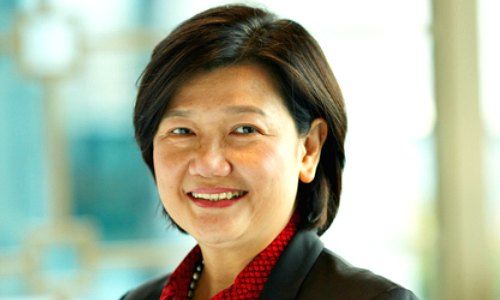The Swiss bank is seeking to rid itself of the image stuck to most private banks: that they are predominantly made up of and for conservative white men. finews.com’s take.
I’m trying to love UBS’ effort to banish the «pale male stale» cliche forever – really. As a woman who has been mansplained countless times by bankers in my day job as well as in the role of banking client, I’d like to embrace it.
But…it’s complicated. The Zurich-based firm has made no secret of its wish to curry favor with women: UBS has two separate programs aimed at hiring and at winning clients.
The first is an effort to bolster its management ranks with more women, and it is commendable, including programs set up for parents to re-enter the work force after a career break.
Sergio Walks the Talk
UBS is truly walking the talk here: CEO Sergio Ermotti (pictured below) is taking counsel from Gail Kelly, who used to run one of Australia’s largest banks.
Kelly, who sits in on UBS top management's strategy meetings and provides advice on overall strategy, regulation and risk, is part of an effort to lift representation of women in management to one-third, from 23 percent currently.

The other push is an ambitious five-year plan championed by Juerg Zeltner: the private banking head wants to swivel the unit’s admittedly man-centric attention towards women. It is, of course, a bid to win more business off them.
„UBS Wealth Management will broaden the dialogue it has with clients to include the purpose of wealth based on four core dimensions: business, investments, family and legacy,“ the bank said in January, when Zeltner disclosed the push.
From Tennis to Harvard
An advisory board set up this week to help do so is stocked with prominent names like Maria Sharapova (pictured below), who is in the process of parlaying five Grand Slam titles into a thriving candy business and other post-sporting ventures.
Sidelined by a doping penalty, Sharapova went into overdrive in her finance career with Harvard Business School classes, an investment in a digital platform, and expanding her Sugarpova candy empire.
She is, presumably, exactly the type of client UBS’ army of private bankers would like to advise – young, wealthy, ambitious, with plans and dreams and spare cash to realize them.

Oddly, a far more successful female athlete – Serena Williams – featured earlier this year in a breathtaking UBS portrait series shot by star photographer Annie Leibovitz. Williams would have been the better bet for UBS, but alas she has been attached to J.P. Morgan since 2015.
What stands out on UBS’ advisory board? The trouble that UBS has had finding self-made women to stand with the bank in its fight for banking equality.
To be clear: all the women are extremely accomplished in their chosen fields. But – and herein lies the rub – many of them had an extreme head-start in life and business.
To the Manor Born
Take Wendy Appelbaum: the daughter of South African tycoon Donald Gordon worked in her father’s business before turning to winemaking, breeding racehorses and philanthropy. She is a passionate – and fiercely vocal – advocate of gender equality.
Or Ebru Ozdemir, the Turkish businesswoman who runs Limak Investments, the firm her father founded thirty-odd years ago. Or Ellen Ringier, a Swiss lawyer and philanthropist who married into one of Switzerland’s wealthiest families.
Is listening to women who have inherited great sums of wealth truly female empowerment? At the risk of alienating the sisterhood, many women who haven’t had the benefit of money would say no.
Hard-Scrabble Success
Empowerment for women is access to education and equal job opportunities – things few of these women would have had to worry about growing up.
The only representative to truly embody this is Olivia Lum, a Singaporean who overcame a hard-scrabble childhood to found Hyflux, a multi-million dollar global water business.
To be sure, its advisory board represents a cross-section of the clients UBS is angling for: the bank is certainly more interested in managing Margarita Louis-Dreyfus’ money than, say, that of the next Olivia Lum.
U.S. Absence
Or in a modern-day comparison, UBS is more interested in catering to former Yahoo boss Marissa Mayer’s money needs than those of a struggling Singapore-based fintech «shepreneuer,» chasing a tech dream which could either never turn a profit – or become the next Apple.
UBS’ advisory board may no longer be male and stale, but it is heavy on European roots: Sharapova is Russian, but based in the U.S. Angelica Kohlmann, the niece of famed management guru Peter Drucker, grew up in Brazil but calls Zurich home.
Aside from the lone male, Stony Brook gender studies professor Michael Kimmel, none are American. Along with being thin on self-made women, the absence of the largest wealth market in the world is a stunning oversight by UBS.



































